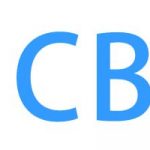The controversial digital trading platform, Crypto Bridge Exchange (CBEX), has resumed operations despite being under investigation for allegedly defrauding over 600,000 Nigerians of N1.2 trillion. The firm, previously declared illegal by Nigeria’s Securities and Exchange Commission (SEC), now allows new registrations and withdrawals while assuring existing users of partial fund recovery by June 25, 2025, pending a UK-led audit.
Traders confirmed that while fresh accounts can withdraw profits freely, old accounts remain locked. To recover wiped funds, previous investors are reportedly required to inject new capital—$100 for balances under $1,000 and $200 for those above—under the guise of insurance verification. CBEX claims an AI-related trading loss caused the April 14 crash, but ongoing investigations aim to verify the true cause and scale of the alleged fraud.
Eight individuals linked to promoting CBEX have been declared wanted by Nigeria’s anti-graft agency, the EFCC, with one already turning himself in. The EFCC has now extended its search internationally, declaring a foreign national, Elie Bitar, wanted in connection with the fraud. Meanwhile, Nigerian and UK authorities continue auditing the firm’s financial records.
Despite ongoing regulatory scrutiny, CBEX promoters are pushing a narrative that funds remain intact, asserting that only about N126 billion was actually lost. They maintain that the current audit is intended to counter inflated fraud claims and restore public trust.
In parallel, the Nigerian Financial Intelligence Unit (NFIU) has issued a strong warning to the public against CBEX and other similar unregulated platforms. It flagged several schemes including ADK, WWCoin (TOFRO), Delux, and eWealth Connect for operating as potential Ponzi or pyramid schemes, noting their reliance on unrealistic returns, aggressive referrals, and misleading marketing tactics.
Among these platforms, ADK was singled out for profiting primarily through investor losses and deceptive systems. WWCoin was criticised for daily return promises of up to 6%, while Delux and eWealth Connect were flagged for regulatory uncertainty despite their community-focused appeal.
The NFIU urged Nigerians—especially youth, students, and freelancers—to avoid platforms that guarantee high, risk-free profits and lack proper licensing. It warned against schemes built on referrals instead of products or services and cautioned about platforms that rely on fake endorsements, non-tradable tokens, and opaque business models.
The SEC also reiterated that registration with the Corporate Affairs Commission or the EFCC’s anti-money laundering unit does not make a digital investment platform legitimate. They stressed that many platforms misuse such affiliations to mislead the public, emphasizing the need for investors to conduct thorough due diligence before putting their money into any online scheme.










